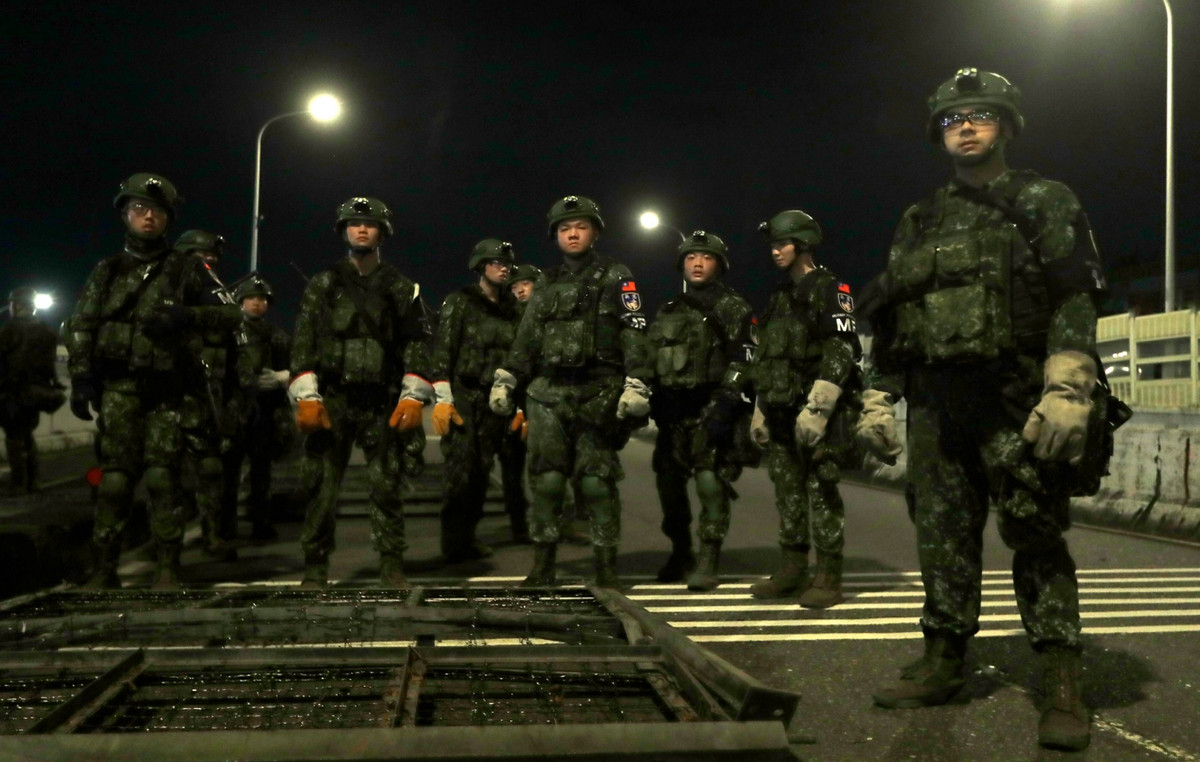If Israeli Prime Minister Benjamin Netanyahu was seeking easy political victories that once came from US President Donald Trump, he left the oval hall with empty hands.
The meeting should deal with the negotiation between the two leaders about the new 17% tariff that the White House imposed Israeli exports last week. In an attempt to avoid them, Israel had eliminated their own rates on American products a day earlier, although they had been applied to very few items.
Sitting next to Trump at the White House, Netanyahu said Israel would eliminate commercial barriers and commercial deficits “very quickly.” With its usual compliments effusive to Trump, the longtime Israeli leader said, “Let’s eliminate tariffs quickly.”
This made no difference to Trump. He pointed out that Israel receives $ 4 billion a year from the United States – “Congratulations, by the way. This is very good,” he said – but has not committed to changing his plans.
“Maybe not, maybe not,” he said when asked he would reduce the tariffs.
For years, Netanyahu has become accustomed to Trump’s gifts, especially during the Republican’s first term.
The change from the US embassy to Jerusalem, the recognition of the Golhan hills occupied as part of Israel, the normalization of relations between Israel and two Gulf Arab countries, among others – Netanyahu was always eager to celebrate these decisions and the president who made them.
Netanyahu was quick to point out that he was not only the first foreign leader to visit Trump during his second term, but also the first to meet him to negotiate tariffs. However, this meeting left Netanyahu without clear results or US promises by which he could take the credit.
The biggest blow was about one of Netanyahu’s favorite topics: Iran.
For days before the highly anticipated meeting, Israeli media was full of speculation that the two leaders would discuss military attacks on Iran.
Sunday’s main headline (6) in Israel’s most prominent newspaper, Yedioth Ahronoth, exclaimed “Iran in the first place” and said that the Islamic Republic would need to suffer a “heavy blow” before negotiating.
The presence of at least six US B-2 stealthy bombers in the Indian Ocean and a second aircraft carrier in the Middle East only increased speculation in Israel that an attack was not only possible but increasingly likely.
In the end, the biggest headline was about Iran, but almost certainly not the way Netanyahu expected.
Trump announced that the US and Iran were about to begin negotiations about the possibility of a new nuclear agreement.
Netanyahu knew that Trump was looking for negotiations with Iran, but the sudden revelation of imminent negotiations-which would start on Saturday (12)-seemed to have surprised the prime minister.
The smile quickly disappeared from his face as he looked at his team of counselors.
The announcement certainly “was not” the liking of Israel, two sources told CNN . It is unclear whether Netanyahu has been warned in advance about US-WIRD negotiations or if it was consulted before, the sources added.
Before flying back to Israel, Netanyahu exposed his position.
“We agree that Iran will not have nuclear weapons. This can be done through an agreement, but only if this agreement is in the Libyan style,” he said, referring to a 2003 agreement in which Libya voluntarily agreed to completely dismantle its nasty nuclear program.
But if Iran drags negotiations, Netanyahu said it discussed the military option “long” with Trump.
In Israel, the damage was already done.
“If (Trump) has begun negotiation without our knowledge, it means that it will represent only American interest,” said Ronni Shaked, a researcher at the Truman Institute at Hebrew University. If Israel knew in advance, Netanyahu could have contributed to “some ideas, some new facts, some new intelligence information,” said Shaked. “But here is nothing, absolutely nothing.”
Trump President Recep Tayyip Efusive compliments – one of Israel’s most vehement critics since the beginning of the war in Gaza – was another surprising line at a press conference full of them.
Last year, Erdogan asked God to “punish” Netanyahu and said in an electoral rally: “Let’s send the person named Netanyahu to Allah.” For months, Erdogan maintained a constant flow of anti-Israel rhetoric-and specifically anti -netanyahu.
Sitting next to Netanyahu, Trump praised Erdogan. “I have great relationships with a man named Erdogan,” said Trump. “He’s a tough guy. He’s very intelligent.” Trump said he believed he could resolve any disagreement between Turkey and Israel.
“I think it was especially embarrassing for Netanyahu, because last week Erdogan said he thinks Israel should be destroyed or eliminated,” said Alon Liel, former Israeli-bault in Turkey. “It was a very small part (from the press conference), but very significant.”
During a speech to mark the Muslim holiday of EID AL-FITR, on March 31, Erdogan asked God to “condemn Israel to misery.”
Trump gave Netanyahu political coverage at home.
The two leaders said they are working on another deal to bring Israeli hostages back from Gaza.
Trump said Netanyahu is working on this constantly, even while Israeli leader faces continuous criticism that he is not doing enough to bring the hostages back.
Trump said he would like to see the war end “and I think the war will end at some point, it will not be in the future far away.”
For Netanyahu, a ceasefire would be a poisoned chalice, as his government depends on the support of far right parties who are vehemently opposed at the end of the war.
Referring to Netanyahu for his nickname, Shaked said, “Bibi is coming home with empty hands, empty. Neither Iran, nor Gaza, nor the kidnapped people.”
This content was originally published under review: Netanyahu returns to Israel with empty hands after meeting with Trump on CNN Brazil.
Source: CNN Brasil
Bruce Belcher is a seasoned author with over 5 years of experience in world news. He writes for online news websites and provides in-depth analysis on the world stock market. Bruce is known for his insightful perspectives and commitment to keeping the public informed.







